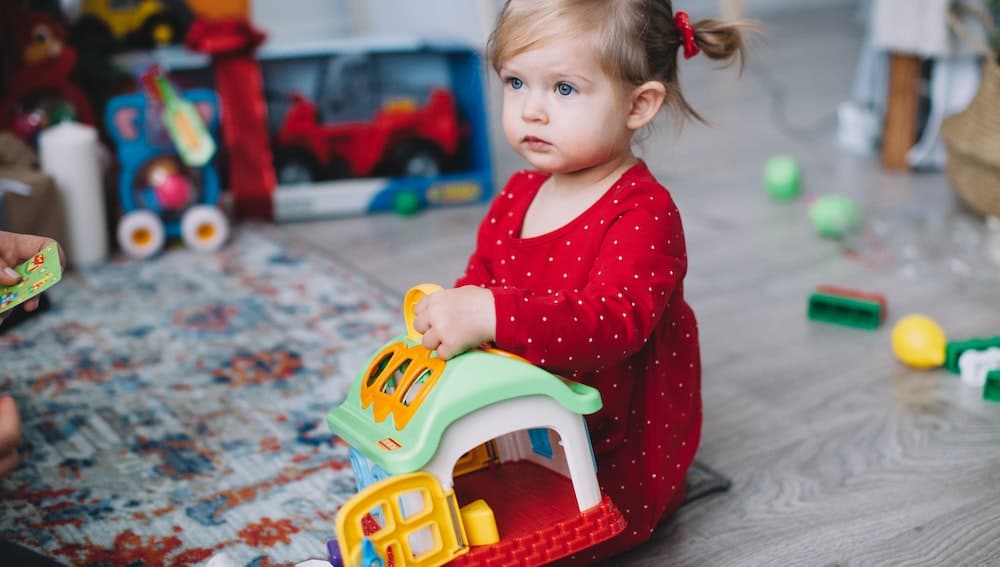Daycare is a common option for parents who need to work or attend to other responsibilities during the day. It provides a safe and stimulating environment for children, where they can interact with peers and trained caregivers.
However, as children grow and develop, parents may wonder at what age daycare stops being necessary or beneficial for their child.
The answer to this question depends on various factors, including the child’s age, temperament, and developmental stage, as well as the family’s needs and preferences.
Some children may thrive in daycare settings from infancy to preschool, while others may benefit more from staying at home with a parent or caregiver.
Understanding the pros and cons of daycare, as well as the different types of programs and schedules available, can help parents make informed decisions about their child’s care.
Key Takeaways
- The decision to stop daycare depends on the child’s age, temperament, and developmental stage, as well as the family’s needs and preferences.
- Daycare can provide a safe and stimulating environment for children, but it may not be the best option for every family.
- Parents should consider the pros and cons of daycare, as well as the different types of programs and schedules available, when making decisions about their child’s care.
Understanding Daycare
Daycare is a service that provides child care for children of various ages. It is a community-based service that is designed to help parents who need to work or attend to other responsibilities.
Daycare centers are staffed by trained professionals who provide a safe and nurturing environment for children.
The age at which daycare stops varies depending on the center and the policies of the state or country. Generally, daycare services are available for children from infancy to around 12 years of age. However, some centers may offer services for older children as well.
One of the primary benefits of daycare is that it provides children with an opportunity to interact with other children and develop social skills.
This is particularly important for children who may not have siblings or who do not have many opportunities to interact with other children in their daily lives.
Daycare centers also provide a structured environment that promotes learning and development.
Children are often engaged in activities that are designed to help them develop cognitive, social, and emotional skills. These activities may include story time, music and movement, outdoor play, and arts and crafts.
Parents who use daycare services can benefit from the peace of mind that comes with knowing their children are in a safe and nurturing environment. They are also able to attend to their work or other responsibilities without worrying about their children’s safety or well-being.
In conclusion, daycare is a valuable service that provides child care for children of various ages. It is a community-based service that is designed to help parents who need to work or attend to other responsibilities.
Daycare centers provide a safe and nurturing environment for children and promote learning and development. The age at which daycare services stop varies depending on the center and the policies of the state or country.
Age Range in Daycare
Daycare is a popular option for parents who need to work or have other obligations during the day. However, many parents wonder at what age their child will no longer need to attend daycare.
The age range for daycare can vary depending on a variety of factors, including the child’s age, the type of daycare, and the parents’ needs.
Infants are typically the youngest age group in daycare, and many daycare centers will accept babies as young as six weeks old. The age range for infants in daycare can vary, but most infants will stay in daycare until they are around 12-18 months old.
At this age, they may be ready to transition to a toddler room where they can start to explore and play more independently.
Toddlers are typically the next age group in daycare, and they usually stay in daycare until they are around 2-3 years old. At this age, they may be ready to transition to a preschool program where they can start to learn more structured activities and socialize with other children their age.
Preschoolers are typically the next age group in daycare, and they usually stay in daycare until they are around 4-5 years old. At this age, they may be ready to transition to a kindergarten program or start attending school.
School-age children may also attend daycare, especially if their parents need before or after school care. The age range for school-age children in daycare can vary, but most daycare centers will accept children up to around 12 years old.
Overall, the age range for daycare can vary depending on the child’s age, the type of daycare, and the parents’ needs. It is important for parents to consider their child’s individual needs and development when deciding when to transition them out of daycare.
Daycare Programs and Schedules
Daycare programs usually cater to children from infancy to preschool age. These programs provide a nurturing and safe environment for children while their parents are at work or away.
Daycare schedules vary depending on the program and the needs of the family. Some programs offer full-time care, while others offer part-time care or after-school programs.
After-school programs are designed to provide care for children after the school day ends. These programs usually offer a specific course of study or learning program to help children with their homework and other academic needs.
Before and after-school programs are also available for families who need care for their children before and after school hours.
Daycare programs may offer additional services such as meals, transportation, and extracurricular activities. After-school care may include snack time, outdoor play, and other recreational activities. Some programs may also offer specialized services for children with special needs.
Overall, daycare programs and schedules are designed to meet the needs of working families. These programs provide a safe and nurturing environment for children while their parents are at work or away.
Families should research different programs and schedules to find the one that best meets their needs.
Child Development in Daycare
Daycare can play a significant role in a child’s development, especially during the early years. In daycare, children can learn a variety of skills, including social, emotional, cognitive, and physical skills.
One of the most important skills that children can learn in daycare is socialization. Children learn how to interact with other children and adults, which can help them develop social skills such as sharing, taking turns, and cooperation.
Daycare can also help children develop their language skills. Children can learn new words and phrases by listening to other children and adults. They can also practice their communication skills by interacting with others.
In terms of cognitive development, daycare can provide children with opportunities to learn basic concepts such as colors, shapes, and numbers. Children can also develop their fine motor skills by engaging in activities such as drawing, painting, and playing with small toys.
Gross motor skills can also be developed in daycare. Children can engage in physical activities such as running, jumping, and climbing, which can help them develop their coordination and balance.
Daycare can also help children develop positive behaviors. Children can learn how to follow rules and routines, which can promote self-discipline and responsibility.
They can also learn how to manage their emotions and cope with frustration, which can reduce the likelihood of tantrums and other disruptive behaviors.
In summary, daycare can play an important role in a child’s development. Children can learn a variety of skills, including social, emotional, cognitive, and physical skills.
By providing children with a safe and nurturing environment, daycare can help children develop positive behaviors and prepare them for future success.
Health and Nutrition in Daycare
When it comes to daycare, parents want to ensure that their children are receiving proper nutrition and care to maintain good health.
Daycare providers play a crucial role in promoting healthy habits and providing nutritious meals and snacks for children in their care.
Child Health: Daycare providers are responsible for ensuring that children in their care are healthy and safe. They must follow state regulations and guidelines to maintain a safe and healthy environment.
This includes ensuring that children receive proper nutrition and adequate exercise to promote healthy growth and development.
Feeding: Daycare providers must follow guidelines for feeding children in their care. They must provide nutritious meals and snacks that meet the dietary needs of each child.
They must also accommodate any food allergies or dietary restrictions. Providers must also encourage healthy eating habits and discourage unhealthy snacking.
Immune System: Daycare providers must take steps to prevent the spread of illness among children in their care. This includes following proper hygiene practices such as hand washing and sanitizing surfaces and toys.
Providers must also ensure that children are up to date on their vaccinations to protect against communicable diseases.
In conclusion, daycare providers play a vital role in promoting the health and nutrition of children in their care.
By following state regulations and guidelines, providing nutritious meals and snacks, and taking steps to prevent the spread of illness, providers can help ensure that children are healthy and safe while in their care.
Transition from Daycare
When a child reaches a certain age, parents often wonder when it is time to transition from daycare to other forms of care. This decision can be influenced by a variety of factors, including the child’s age, their readiness for formal education, and their level of independence.
For many children, the transition from daycare to kindergarten is a natural one. Kindergarten provides a structured learning environment that can help children develop important social and academic skills.
Alternative kindergarten programs, such as Montessori or Waldorf schools, can also provide a valuable educational experience for children.
However, not all children are ready for formal education at the same age. Some children may benefit from an extra year of daycare or a transitional program that helps them adjust to a more structured learning environment.
It is important for parents to consider their child’s individual needs and abilities when making this decision.
Separation anxiety can also be a factor in the transition from daycare. Children who have spent a lot of time in daycare may struggle with the separation from their familiar caregivers. It is important for parents to provide emotional support and reassurance during this time.
In conclusion, the decision to transition from daycare to other forms of care is a personal one that should be based on the child’s individual needs and abilities.
Kindergarten and alternative kindergarten programs can provide valuable educational experiences, but some children may benefit from a transitional program or an extra year of daycare.
Parents should also be mindful of separation anxiety and provide emotional support during the transition.
Costs and Alternatives to Daycare
One of the biggest considerations for parents when it comes to daycare is the cost. Daycare costs can vary greatly depending on location, the age of the child, and the type of care needed.
In general, infant care tends to be the most expensive, with costs decreasing as the child gets older.
For many families, daycare may not be the only option for child care. Personal choice plays a big role in deciding what type of care is best for a child.
Some parents may prefer to have a family member or friend care for their child, while others may choose to stay at home with their child themselves.
Work schedules can also play a role in determining the type of child care needed. Some parents may have a flexible work schedule that allows them to care for their child during the day, while others may need to work full-time and require more structured care.
Mothers are often the primary caregivers for young children, but this is not always the case. Fathers, grandparents, and other family members may also play a significant role in caring for a child.
While daycare is a popular option for many families, it is important to consider all of the alternatives available. Family members, friends, and even nanny services can provide quality care for children while also offering more flexibility and cost savings.
Ultimately, the decision on what type of care to choose will depend on the individual needs and preferences of each family.
Choosing the Right Daycare
Choosing the right daycare for your child is a crucial decision that can have a significant impact on your child’s development. There are many factors to consider when selecting a daycare, including the age of your child, the type of care you need, and the quality of the program.
For newborn care, it is essential to find a daycare that has experience caring for infants. Look for a provider who is trained in infant CPR and first aid and has experience with feeding, diapering, and soothing newborns.
It is also important to find a daycare that has a low caregiver-to-child ratio to ensure that your baby receives the attention and care they need.
For toddler care, look for a daycare that offers a structured program that includes age-appropriate activities and opportunities for socialization. A good toddler program should focus on developing gross and fine motor skills, language development, and social skills.
It is also important to find a daycare that has a safe and stimulating environment with plenty of opportunities for exploration and play.
When choosing a childcare program, consider the type of program that best suits your child’s needs. Some programs, such as Montessori or Reggio Emilia, focus on child-led learning and exploration, while others, such as traditional daycare programs, offer a more structured approach.
It is important to choose a program that aligns with your child’s learning style and developmental needs.
It is also a good idea to consult with your child’s pediatrician when selecting a daycare. Your pediatrician can provide recommendations and advice on what to look for in a daycare program based on your child’s individual needs.
Finally, be sure to do your research when selecting a daycare. Read reviews, talk to other parents, and visit the facility in person to get a sense of the program’s quality and philosophy.
By taking the time to carefully choose a daycare, you can ensure that your child receives the best possible care and education.
Frequently Asked Questions
What is the age limit for child care Tax Credit?
The age limit for child care Tax Credit varies depending on the country or state. In the United States, the child must be under the age of 13 to qualify for the credit. However, the age limit may be extended for children with special needs.
What age does after school care stop?
After school care typically stops when the child reaches middle school or high school. However, some programs may continue to offer after school care for children up to the age of 14 or 15.
What age does kindergarten start?
Kindergarten typically starts at the age of 5. However, the age requirement may vary depending on the state or country. Some schools may offer pre-kindergarten programs for children as young as 3 or 4.
What is the lowest age for daycare?
The lowest age for daycare varies depending on the daycare center. In some states, infants as young as 6 weeks old may be accepted into daycare programs. However, most centers require that children be at least 6 months old before enrolling.
Can a 14 year old take care of a 10 year old?
While a 14 year old may be capable of taking care of a 10 year old, it is important to ensure that the 14 year old is mature and responsible enough to handle the responsibility.
It is recommended that parents use their judgment and consider the individual abilities of the 14 year old before entrusting them with the care of a younger child.
Is 3 too old to start daycare?
No, 3 is not too old to start daycare. Many daycare centers offer programs for children as young as 6 weeks old up to the age of 5. However, it is important to consider the child’s individual needs and readiness for daycare before enrolling them.
See a similar post: Best Age for Daycare

Iesha is a loving mother of 2 beautiful children. She’s an active parent who enjoys indoor and outdoor adventures with her family. Her mission is to share practical and realistic parenting advice to help the parenting community becoming stronger.



